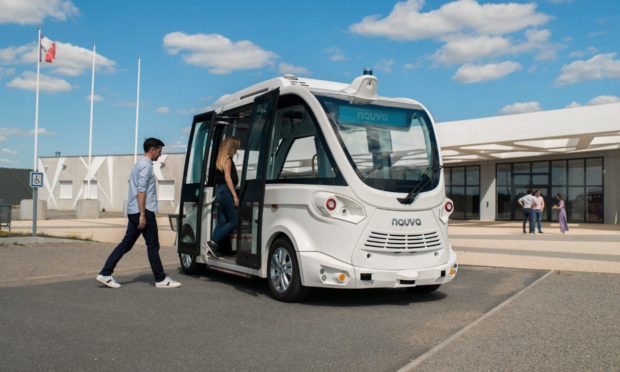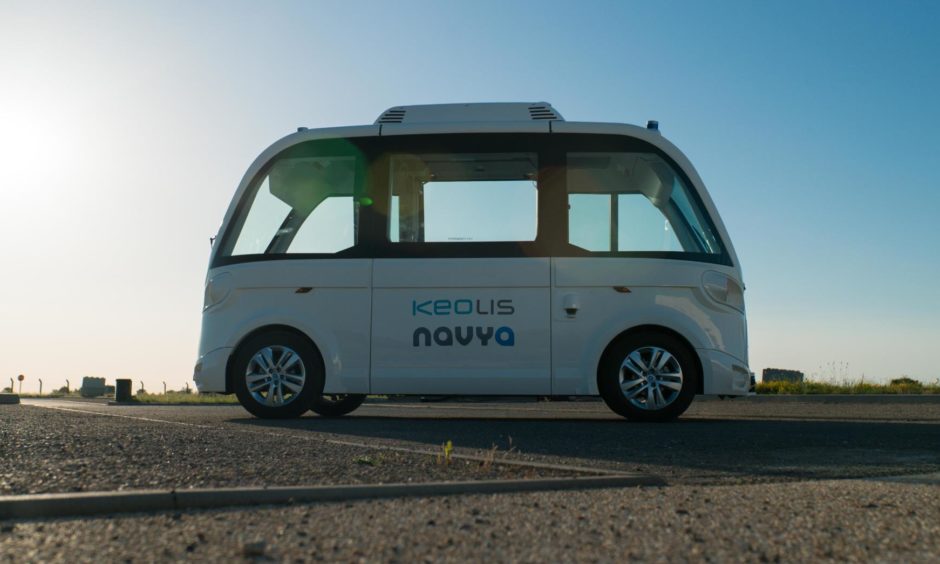Trials of a driverless bus are set to be held in Inverness later this year as part of a move to bring the technology across the Highlands and Islands in future.
Inverness Campus has been earmarked as a site to trial an autonomous shuttle service to the nearby retail park by the summer.
It is hoped it will be the forerunner of driverless services in remote and rural parts of the region in a bid to move away from private car use.
Autonomous vehicles combine sensors and software to control, navigate and drive. Widespread use on Europe’s roads is anticipated by the 2030s.
Progress on trialling the technology in the Highlands has been delayed due to Covid-19, but pilot projects are now back on track and tenders for the vehicle will be sought early this year.
Transport partnership Hitrans is the lead agency in the PAV (Planning for Autonomous Vehicles) project and has discussed the pilot with the campus, part of the University of the Highlands and Islands, and Highlands and Islands Enterprise (HIE).
It will complement another pilot in Hanover trialling a driverless shuttle bus between a tram stop and a university.
Hitrans is also working in partnership with Robert Gordon University to investigate a secondary pilot to test ‘connected vehicles’ in Orkney. These use technology to communicate with the driver, other vehicles on the road, roadside infrastructure, and to other systems and services via the Cloud.
It also hopes to revive plans in future for a driverless shuttle between the planned railway station at Inverness Airport, the airport terminal and Tornagrain.
Hitrans director Ranald Robertson said the Inverness Campus pilot, which has a budget of 250,000 Euros, will run for a number of weeks and carry six or 12 passengers. A driver will be on board to take over if needed.
He said: “The technology is very much at the developmental stage, but we see a really good opportunity for the Highlands and Islands to a play part in developing these cases.
“If in future driverless technology can happen it would be really beneficial for providing forms of public transport in rural areas. We need to be on the case and be embedded in any opportunities that are being developed.
“It will not be economically viable to run this commercially at the moment. But in time hopefully the costs will come down and as this becomes more mainstream it will be a really good option for low density areas like our own.”
Hitrans has looked at a number of companies who supply autonomous vehicles, including the French firm Navya, for the Inverness driverless bus project.
A HIE spokeswoman said: “As the Inverness Campus developer, we are in discussions with Hitrans about its proposal to run a trial of an autonomous shuttle mini bus across the campus and into the retail park later this year.
“The campus is popular with walkers, cyclists and many recreational users and we are keen to improve access to and from the campus by providing alternatives to car use and extending the low-carbon travel options that have formed part of the development from the outset.”
The Scottish Government is involved in Project CAV Forth which will trial the first autonomous full-sized bus fleet in passenger service. It said the 14-mile route across the Forth Road Bridge will enhance Scotland’s reputation for innovation and scientific excellence.

